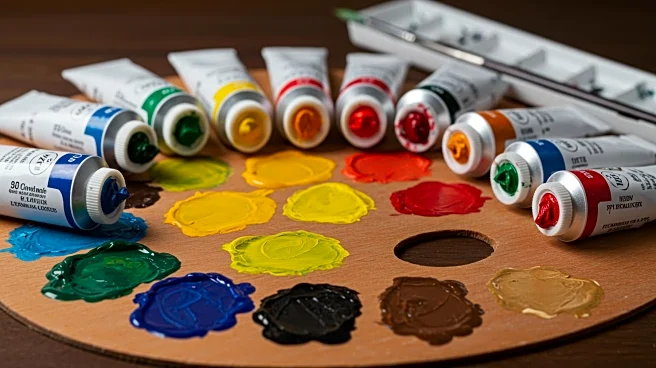What's Happening?
Walter Swennen, a celebrated artist known for his unique approach to painting and language, has died at the age of 79. Swennen, who initially gained attention as a poet, transitioned to painting, where he explored the material properties of the medium with a playful and free style. His works often featured cryptic phrases and figures borrowed from comic books, rendering language unstable and challenging conventional notions of 'good' painting. Swennen's art was characterized by its humor and unconventional use of materials, such as found pieces of wood and plastic instead of traditional canvases. His career gained renewed momentum in the 2010s, with exhibitions in New York and Brussels, and he became influential among younger artists.
Why It's Important?
Swennen's work has had a significant impact on the art world, particularly in Belgium and New York, where his off-kilter humor and unconventional style charmed critics and artists alike. His approach to painting challenged traditional norms and inspired a new generation of artists. Swennen's influence is evident in the works of younger artists who have shown their art alongside his. His career trajectory highlights the importance of innovation and individuality in the art world, encouraging artists to explore new ways of expression and challenge established conventions.
What's Next?
Swennen's passing marks the end of an era for his unique style of painting, but his influence will likely continue to inspire artists and critics. Galleries and collectors may face challenges in preserving and promoting his work, given his lack of a trademark style. The art community may reflect on Swennen's contributions and explore ways to honor his legacy through exhibitions and retrospectives. His influence on younger artists suggests that his unconventional approach to painting will continue to resonate in the art world.
Beyond the Headlines
Swennen's work raises questions about the role of language and humor in art, challenging viewers to engage with paintings on a deeper level. His approach to painting against 'good taste' and embracing disinclination as a virtue reflects a broader cultural shift towards individualism and personal expression. Swennen's legacy may prompt discussions about the evolving nature of art and the importance of challenging established norms.










